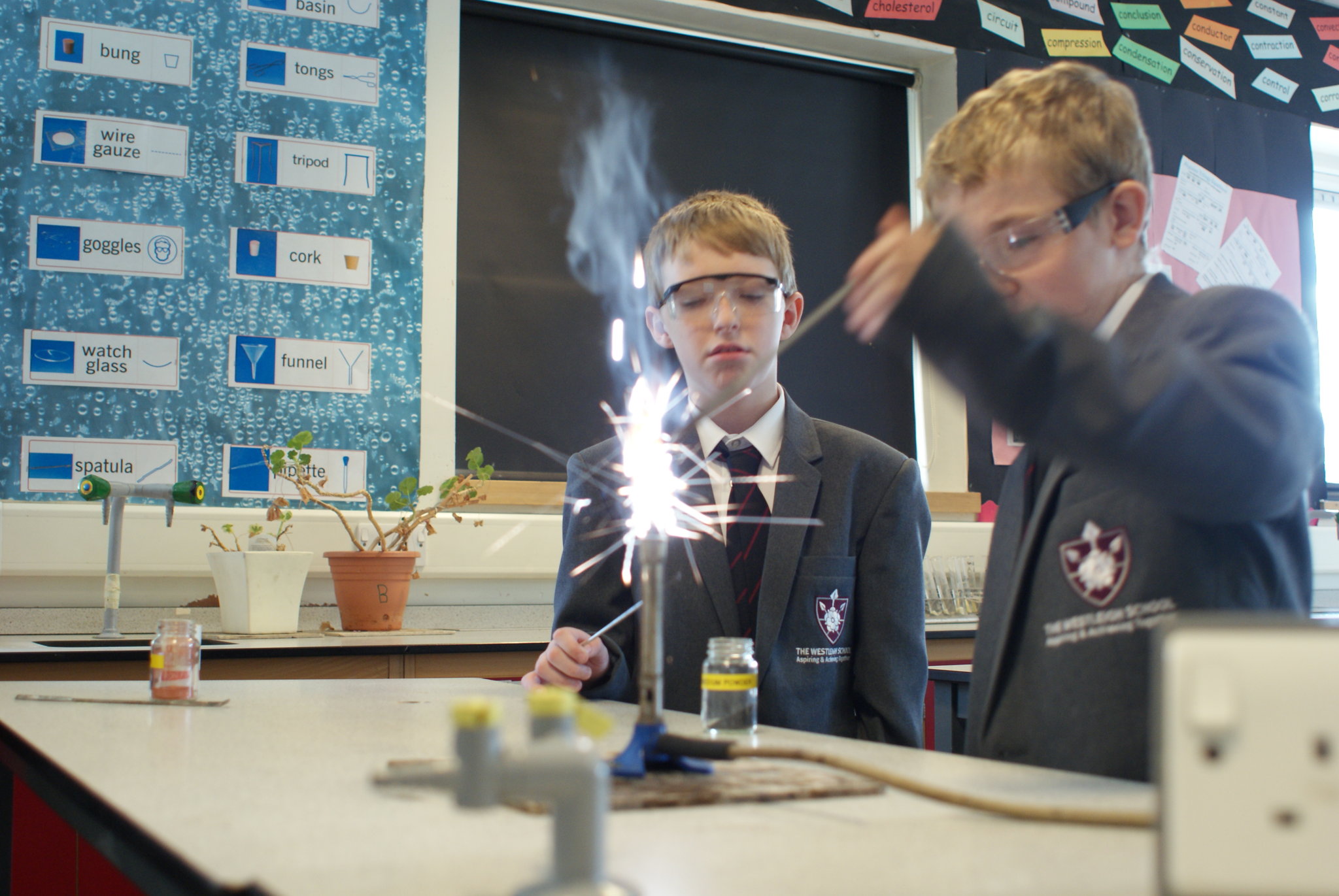Intent
‘To be curious about the world around us, to learn through scientific discovery, and to be the scientists and innovators of the future’
Our vision for Science at The Westleigh School is modelled in our curriculum which encourages students to be curious about the world around them, to learn through hands-on discovery, and to have the ambition to become the scientists and innovators of the future. We believe our curriculum allows a foundational knowledge base which students build on as they become confident, independent learners. We focus heavily on ensuring our pupils have a grasp of the main concepts of science as well as developing their thirst for learning through practical work and skill development. We believe that this approach fully enhances the life chances of our learners. We have ensured that they are continually given the opportunity to apply practical scientific skills, broaden their academic vocabulary, and construct informed educated opinions. Our curriculum aims to develop strong academic outcomes in science through ensuring that our students are able to challenge misconceptions, have a depth and breadth of science knowledge, and can apply their learning in biology, chemistry and physics to real world concepts.
Implementation
Our curriculum is implemented in a way that will ensure every individual achieves success. In order to deliver our aims science lessons are taught by passionate and experienced subject specialists.
- In year 7 students are taught through a bespoke scheme of learning delivered in three one hour lessons per week. The scheme begins with an introduction to science and working safely in a laboratory and then focuses around key concepts and big ideas in science such as cells, atoms, and forces. We actively support the Gatsby Careers Guidance by ensuring all our science topics are linked to a science career to promote scientists of the future.
- In year 8 and 9 students continue to follow a bespoke scheme based around STEM careers which builds on key concepts and hones their working scientifically and investigative skills in readiness for KS4. They also have the opportunity to develop a more in-depth understanding the history of science studying topics such as evolution and the Periodic Table of Elements. More able students are guided to choose separate science GCSE’s during the options process.
- Beginning in term two of Y9 and continuing into Y10 and 11 Key Stage 4 students follow the AQA syllabus. Combined science students are taught five one hour lessons per week delivered by the same teacher in order to build consistency and relationships. Separate science students are taught eight hours per week delivered by a specialist teacher for each of the three disciplines; biology, chemistry and physics. We pay careful attention to the sequence of when knowledge is taught in science and this is reviewed regularly so that students have a deep understanding of key concepts and are well prepared to access exam content. We constantly plan for students to strengthen their literacy and numeracy skills in a science context, and we ensure that students are given ample opportunity to apply both their knowledge and their skills through the required practical element of the GCSE course.
Impact
The impact of our science curriculum ensures that all learners develop a sense of wonder, they show pride in their work, and they leave with skills and qualifications which will equip them for life in the future. Courses are designed to suit the needs of all learners, for example, separate science for most able students and entry level certificate for foundation students, and as a result all students can progress and achieve success in science. Throughout the five year key stage in science students will achieve sustained progression through high quality classwork and assessments, becoming inspired individuals who are knowledgeable about the world around them, and are able to use their science skills in everyday life. Our students will become life-long learners who have the desire, passion and transferable skills to access a wide range of further and higher education courses across a variety of disciplines, as well as having the competencies and qualifications to choose a career pathway in the exciting and ever-expanding field of science.
Learning Journeys
Please click below to view our Science Learning Journeys:
- Key Stage 3 Year 7 Science Course Overview
- Key Stage 3 Year 8 Science Course Overview
- Key Stage 4 Combined Science Trilogy Overview
- Triple Biology Overview
- Triple Chemistry Overview
- Triple Physics Overview
Long Term Plan
Please click here to view our Long Term Plans in Science
"Nothing in life is to be feared, it is only to be understood. Now is the time to understand more, so that we may be fear less." - Marie Curie
Examination Board
The examination board for Science is AQA
The specifications for each Key Stage 4 course can be viewed below:
- AQA Combined Science Trilogy
- AQA Biology (Triple Science)
- AQA Chemistry (Triple Science)
- AQA Physics (Triple Science)
Student Resources
The following resources will support students when studying Science at Key Stage 3
- Year 7 Knowledge Organisers
- Year 8 Knowledge Organisers
- Year 9 Knowledge Organisers
External Resources
Useful external resources to help students study Science
- Seneca - https://senecalearning.com/en-GB/
- BBC Bitesize KS3 Science - https://www.bbc.co.uk/bitesize/subjects/zng4d2p
- BBC Bitesize KS4 AQA Trilogy Science - https://www.bbc.co.uk/bitesize/examspecs/z8r997h
- Free Science lessons - https://www.freesciencelessons.co.uk/
- Primrose kitten science tutorials - https://www.primrosekitten.com/
- Physics and Maths tutor - https://www.physicsandmathstutor.com/

.png)

.png)
